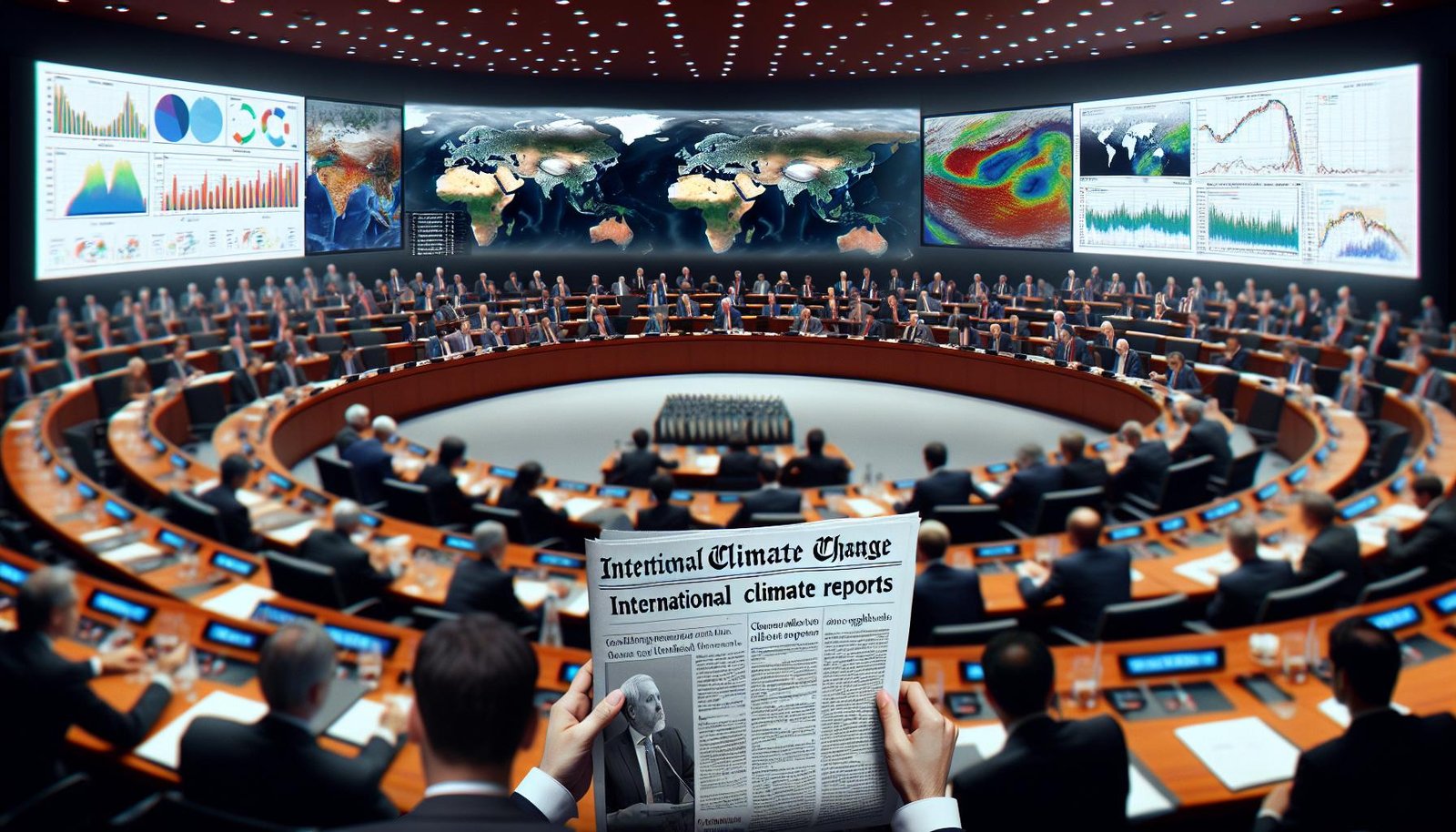
Recently, the climate conversation has been stirred by a surprising development: Donald Trump’s actions are causing uncertainty about the Intergovernmental Panel on Climate Change (IPCC), the world’s most cited climate report. This report plays a crucial role in guiding international strategies to combat climate change, and disruptions could have far-reaching consequences. As we navigate this complex issue, let’s explore the potential implications and understand the science and policies this may affect.
Understanding the IPCC and Its Importance
The IPCC is a global organization of scientists and policymakers who assess climate change data and present comprehensive reports to inform global action. These reports are like roadmaps, helping countries set policies and make agreements to reduce harmful emissions. The IPCC reports provide critical insights, such as predicting temperature increases and understanding how human activities impact the climate.
Scientists collect data from thousands of research studies to create these reports. They look at things like greenhouse gases—such as carbon dioxide and methane—that trap heat in our atmosphere, contributing to global warming. To simplify, think of greenhouse gases as a blanket over Earth, keeping it warm enough to support life, but when we add too much, it gets too hot.
Former President Trump’s Role in Current Uncertainty
Donald Trump has often questioned the science behind climate change, previously withdrawing the United States from the Paris Agreement, a crucial international treaty aimed at limiting global warming. Such actions disrupt collective efforts to mitigate climate change impacts, as the U.S. is a major global player. His stance and policies have created a ripple effect, fueling uncertainty about future climate initiatives.
For instance, Trump’s administration rolled back numerous environmental regulations, reducing protections that limit industrial emissions of toxic substances. When major players like the U.S. show reluctance toward climate action, it can weaken the global resolve and hinder progress, as countries often look to the U.S. for leadership.
Environmental and Sustainability News: Current Challenges
The uncertainty surrounding the IPCC reports affects how countries might address climate issues in the future. Climate change, which involves complex environmental processes like greenhouse gas effects and carbon sequestration, requires coordinated global responses. It’s like a team of doctors working together to treat a patient; everyone needs to follow the plan to see improvements.
Disruptions may lead to slower policy responses or inadequate environmental protections, exacerbating issues like biodiversity loss and extreme weather. According to a recent report, failing to meet emission targets could raise global temperatures significantly, impacting ecosystems and human health.
Scientific and Technological Insights: Climate Mechanisms
To understand what’s at stake, let’s delve into some climate science. Our planet’s climate is affected by various processes, including ocean currents and atmospheric patterns. Changes in these systems can lead to more severe weather events, such as hurricanes and droughts. Additionally, feedback loops, like ice melting in polar regions which then absorbs more sunlight rather than reflecting it, can accelerate warming.
Scientists use computer models to simulate the Earth’s climate system, testing different scenarios to predict future changes. This information helps us understand potential impacts and devise strategies to reduce harm. However, uncertainty in key climate reports can lead to a lack of confidence in such models, making it tougher to plan effective actions.
Societal and Political Context: Broader Implications
Politically, Trump’s actions reflect broader trends of climate skepticism, which can reduce public support for climate policies. In the U.S., political ideology often shapes opinions on climate science more than the science itself. This divide affects policy-making and can slow down necessary legislation to tackle climate issues. According to a study, there’s significant partisan disagreement on how the U.S. should approach climate change, affecting the country’s environmental strategies.
Innovative Solutions: Looking Forward
Despite the uncertainty, there are optimistic developments in green technology and sustainable practices. Innovations such as solar power advances and wind energy are becoming more efficient and widespread. These technologies can help reduce reliance on fossil fuels, one of the primary sources of greenhouse gas emissions.
There’s also a growing movement towards carbon-neutral businesses and sustainable consumerism. Encouragingly, many companies and regions are setting ambitious goals for carbon neutrality, even as some political leaders hesitate.
In conclusion, while current actions cast a shadow over climate efforts, the global community’s resilience offers hope. Increased public awareness and technological advancements may counterbalance policy uncertainties, highlighting the need for continued advocacy and innovation in addressing climate issues. Readers interested in supporting environmental causes can explore ways to reduce their carbon footprint and support policies promoting sustainable practices, ensuring a healthier planet for future generations.
The post Trump’s Uncertain Impact on the World’s Leading Climate Report appeared first on Green.org.














